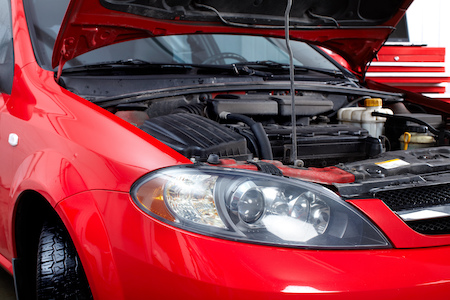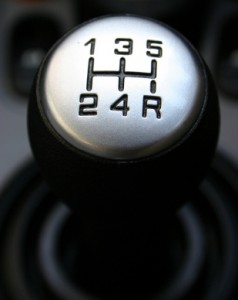Having a new car means you won’t have much to think about. It’ll perform well every time you drive.
However, even new cars are subject to potential problems. That’s why cars come with a warranty.
All new cars and some used cars will come with a warranty. But “warranty” can mean different things and cover different parts of the vehicle.
Bumper-to-bumper – Bumper-to-bumper warranties are issued on new cars, with the length of time determined by years or mileage: 3 years/36,000 miles would be an example. They can change based on the make and model, and what the manufacturer decides to cover.
Powertrain – Powertrain warranties only cover the drivetrain. This includes the engine, transmission, driveshaft, differential, and other parts connected to the power supply. These parts generally are the most expensive components on a car, and will cost you the most out of pocket if something goes wrong. You’ll often find powertrain warranties higher than bumper-to-bumper, such as 10 years/100,000 miles.
Warranties are not insurance. They aren’t designed to fix damage caused by an accident. Warranties exclusively fix problems caused by a bad build or design. If any damage occurs through normal driving or wear and tear, it won’t be covered by a warranty.
Warranties will, however, be influenced by your approach to car repair. If you don’t regularly maintain your vehicle, it might leave the components vulnerable. If you don’t change the motor oil regularly, for instance, the powertrain warranty may do you no good.
Yes, you can approach car repair your way and still keep a warranty valid
There are many misleading recommendations from auto dealers that to maintain a warranty, you’ll have to service a vehicle in-house. Not true.
The Magnuson-Moss Warranty Act made it unlawful for car dealers to deny a claim or void a warranty if maintenance is performed by someone other than the dealer. Coverage can only be denied if the service is performed incorrectly.
That makes car repair that much more critical. Only have your vehicle serviced at a reputable car repair shop to ensure every routine maintenance item you do is done correctly. Trust that they will perform service up to code and won’t use inferior parts that could void the warranty.
What does regular vehicle maintenance include?
Keeping a car in good working condition requires regular maintenance. Working with a reputable car repair shop ensures your vehicle stays in the best shape possible. Regular servicing includes:
Oil changes
Motor oil should be changed every 3,000 to 10,000 miles, or once every three to six months, depending on the make and model of your vehicle. Oil changes are the most important service you can provide your vehicle on a regular basis. Err on replacing it more rather than letting it go on too long.
Fluid changes
While motor oil may be the most common fluid to change regularly, it isn’t the only one. Other fluids that should be checked and refilled or replaced periodically include:
- Brakes
- Coolant
- Power steering
- Transmission
- Windshield wiper fluid
Fluid replacement also depends on the make and model. Some vehicles can go years without replacement, but it is still a good idea to have them inspected occasionally. Read through your owner’s manual for more details on what to expect.
Tire Rotations
Rotating your tires helps ensure that they wear evenly, which can extend the life of your tires. It can also help improve your car’s handling and fuel efficiency. Most manufacturers recommend rotating your tires every 5,000 to 7,000 miles to even out wear and tear and make the tires last as long as possible.
Brake Inspections
If your brakes are not working properly, it can be dangerous to drive your car. Most manufacturers recommend regularly inspecting your brake pads and replacing them every 20,000 to 50,000 miles. If you don’t replace them early, they risk wearing down the brake rotors, which can be a more costly repair.
Air Filter Replacement
A dirty air filter can reduce your car’s fuel efficiency and can cause damage to your engine. Most manufacturers recommend replacing your air filter every 15,000 to 30,000 miles.
Battery Check
Your car’s battery is responsible for powering all of the electrical components in your vehicle. If your battery is weak or not functioning correctly, it can cause your car to break down or fail to start. Most manufacturers recommend having your battery checked every three years. Still, it’s a good idea to have it checked more frequently if you take short trips or regularly face extreme temperatures.
Timing Belt Replacement
The timing belt is responsible for synchronizing the rotation of the engine’s camshaft and crankshaft. If the timing belt breaks, it can cause significant damage to your engine. Most manufacturers recommend replacing your timing belt every 60,000 to 100,000 miles, depending on the make and model of your car.
Spark Plug Replacement
Spark plugs are responsible for igniting the fuel in your car’s engine. If your spark plugs are worn or dirty, it can cause your engine to misfire, leading to reduced performance and fuel efficiency. Most manufacturers recommend replacing your spark plugs every 30,000 to 100,000 miles, depending on the type of spark plugs your car uses.
Transmission Service
Your car’s transmission is responsible for shifting gears and transferring power from the engine to the wheels. Regular transmission service can prevent transmission problems and extend the life of your transmission. Most manufacturers recommend having your transmission serviced every 30,000 to 60,000 miles.
Suspension and Steering System Check
Your car’s suspension and steering system are responsible for providing a comfortable ride and allowing you to control your vehicle. Regularly checking and maintaining these systems can prevent problems and ensure your car handles correctly. Most manufacturers recommend checking your suspension and steering system every 50,000 miles or as needed.
Keep your new car new – schedule car repair
When you purchase a car, the last thing you want to consider is your vehicle failing. It happens. Keep the warranty in mind as you schedule car repair inspections occasionally.
Warranties cover any repairs or replacements due to a design fault. However, it is essential to note that a warranty can become void if you do not properly maintain your car.
Are you up to date on your inspections and repairs?


 When it comes down to it, a car is a car. Yes, hybrids operate a little differently than your standard gasoline model. But hybrids still have a regular gas engine along with their electric aspects. Which means they will need routine maintenance just like any other gas vehicle on the road today.
When it comes down to it, a car is a car. Yes, hybrids operate a little differently than your standard gasoline model. But hybrids still have a regular gas engine along with their electric aspects. Which means they will need routine maintenance just like any other gas vehicle on the road today. In order to make sure your car is in top shape, don’t wait for a problem to occur. Instead, find a neighborhood car repair shop you can trust; one that will help you keep your car in great shape, and one that will give you reliable transportation for many years to come.
In order to make sure your car is in top shape, don’t wait for a problem to occur. Instead, find a neighborhood car repair shop you can trust; one that will help you keep your car in great shape, and one that will give you reliable transportation for many years to come. Regular maintenance can keep your car running at maximum efficiency. Just like everything in life, your car needs a little TLC to keep it at max performance. Performing regular, scheduled maintenance can keep your engine cleared out and running well, your tires full and functioning properly, your transmission in peak performance, etc.
Regular maintenance can keep your car running at maximum efficiency. Just like everything in life, your car needs a little TLC to keep it at max performance. Performing regular, scheduled maintenance can keep your engine cleared out and running well, your tires full and functioning properly, your transmission in peak performance, etc.